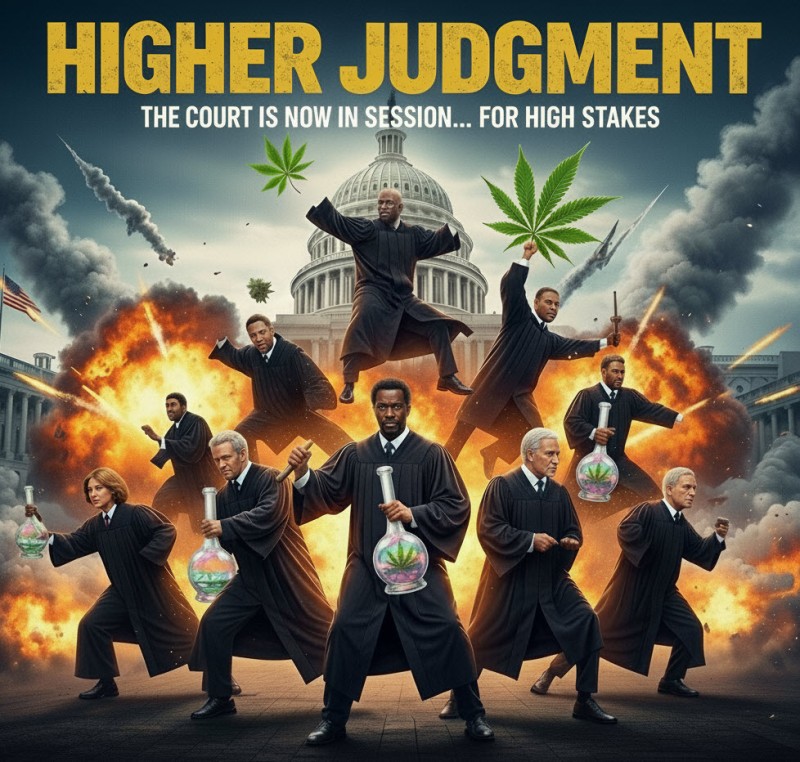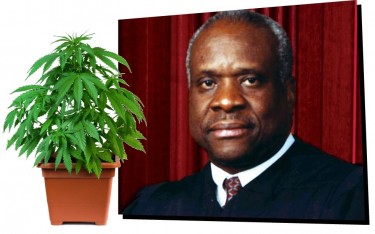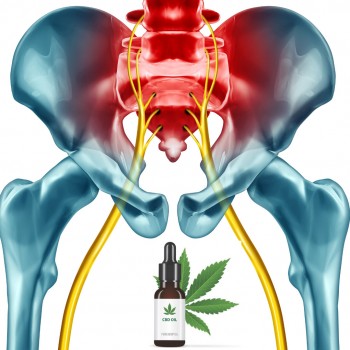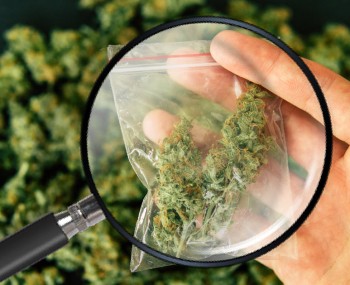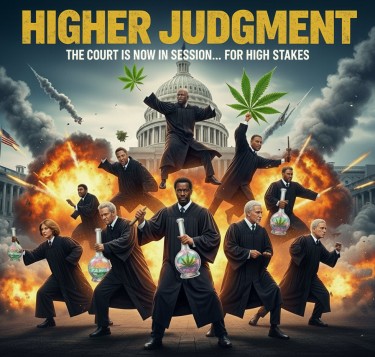
Well, well, well. Here we are again, folks – watching the highest court in the land grapple with questions that shouldn't even exist in a rational society. The Supreme Court is preparing to hear two cannabis-related cases that perfectly encapsulate the absurd legal pretzel we've twisted ourselves into after decades of prohibition.
On one hand, we have U.S. v. Hemani, where the government wants to clarify that anyone who's ever touched cannabis should be permanently barred from exercising their Second Amendment rights. On the other, there's Canna Provisions v. Bondi, a direct challenge to the federal government's authority to criminalize state-legal cannabis operations. These cases represent the inevitable collision between outdated federal prohibition and the reality that most Americans – and most states – have moved on.
What's particularly infuriating about these cases is that they perfectly illustrate the legal chaos created by our schizophrenic approach to cannabis policy. We have a plant that's legal for recreational use in 24 states plus D.C., medically legal in 38 states, yet still classified alongside heroin at the federal level. It's like having a traffic light that's simultaneously red, green, and yellow – nobody knows what the hell they're supposed to do.
The Hemani case is especially rich in its implications. According to the government's logic, a grandmother using state-legal medical marijuana for glaucoma should be treated the same as a crack addict when it comes to gun ownership. Meanwhile, someone can legally get blackout drunk every night and still buy an arsenal, because alcohol isn't on the Controlled Substances Act. The cognitive dissonance is staggering.
These cases matter not because they'll definitively resolve our cannabis policy mess – they won't – but because they highlight just how untenable our current system has become. We're forcing the Supreme Court to make constitutional determinations about a substance that the majority of Americans believe should be completely legal. It's like asking judges to rule on the legal status of tomatoes while half the country insists they're vegetables and the other half knows they're fruit.
The real question isn't how these cases will be decided – it's why we're still having these conversations at all.
The Gun Rights Paradox: When Cannabis Users Become Second-Class Citizens
Let me paint you a picture of the legal absurdity at the heart of U.S. v. Hemani. Ali Danial Hemani, a Texas man being investigated for completely unrelated reasons, was charged with a federal felony not for violence, not for selling drugs, but for the crime of possessing a firearm while being a "user" of marijuana. The government's position is so broad that it would criminalize millions of Americans who are following their state laws to the letter.
Here's where it gets really stupid: the term "user" is so vague it could apply to someone who consumed cannabis once in the past year. Under the government's interpretation, a military veteran using state-legal medical cannabis for PTSD could face up to 15 years in federal prison for owning a hunting rifle. Meanwhile, that same veteran could drink a fifth of whiskey every night and purchase an entire gun collection without legal consequence.
The Fifth Circuit Court of Appeals actually showed some sense here, ruling that you can't "disarm a sober person based solely on past substance usage." But the Department of Justice, apparently having nothing better to do than persecute people for plant consumption, appealed to the Supreme Court. They're literally asking the highest court in the land to confirm that cannabis users are permanently second-class citizens who forfeit their constitutional rights.
This case exposes the fundamental hypocrisy of our drug scheduling system. Alcohol, which kills 140,000 Americans annually and is directly linked to domestic violence, has no federal restrictions on gun ownership. Cannabis, which has never directly caused a single death and is actually associated with reduced aggression, apparently makes you too dangerous to own a firearm.
The government's brief hilariously tries to compare modern cannabis users to "founding-era drunkards," apparently unaware that the founders were literally growing hemp and probably consuming cannabis themselves. Thomas Jefferson grew hemp, George Washington grew hemp, and there's credible evidence that several founding fathers used cannabis medicinally. By the government's logic, the guys who wrote the Second Amendment would be prohibited from exercising it.
What's particularly galling is that this case cuts against everything the Trump administration claims to believe about gun rights and state sovereignty. Here we have the federal government arguing that states can't determine who gets to exercise Second Amendment rights, while simultaneously trying to expand federal gun restrictions. It's the kind of position that would make a libertarian's head explode.
The practical implications are staggering. According to Hemani's attorneys, millions of Americans are currently violating federal law by legally using cannabis under state law while owning firearms. The government is essentially creating a massive class of unwitting felons who thought they were following the law.
This isn't just about gun rights or cannabis rights – it's about the fundamental question of whether the federal government can create legal traps that criminalize behavior that states have explicitly legalized. The Supreme Court's decision could either affirm that constitutional rights are contingent on federal drug scheduling, or recognize that such an approach is fundamentally incompatible with both federalism and individual liberty.
State Sovereignty vs. Federal Overreach: The Commerce Clause Strikes Again
The second case, Canna Provisions v. Bondi, goes straight for the jugular of federal cannabis prohibition by challenging the legal foundation that's kept this whole charade going for decades. Four Massachusetts cannabis businesses are essentially asking the Supreme Court: "By what authority does the federal government criminalize a plant that we grow, process, and sell entirely within our state borders?"
This case directly challenges the 2005 Gonzales v. Raich decision, which gave Congress virtually unlimited power to criminalize cannabis under the Commerce Clause. The Raich decision was always legally dubious – it essentially argued that not participating in interstate commerce somehow affects interstate commerce, a logic so twisted it would make a philosopher weep.
But here's what's changed since Raich: we now have concrete evidence that state-legal cannabis markets actually reduce illegal interstate trafficking, not increase it. The original justification for federal interference – that state-legal cannabis would boost the black market – has been proven factually wrong. States with legal markets have seen dramatic reductions in cannabis-related arrests and illegal trafficking.
The petitioners make a compelling argument that today's state-legal cannabis is "not fungible with interstate marijuana" and is "readily distinguishable from interstate marijuana." In other words, the regulated, tested, packaged cannabis sold in Massachusetts dispensaries has about as much to do with cartel weed as craft beer has to do with moonshine. They're completely different products serving different markets.
This case represents a direct challenge to the federal government's monopoly on drug policy. If the Court rules that Congress lacks authority to criminalize purely intrastate cannabis activity, it could fundamentally reshape not just cannabis law, but federal power generally. We're talking about potentially the most significant federalism case in decades, disguised as a marijuana dispute.
The broader implications extend far beyond cannabis. If the federal government can criminalize the intrastate cultivation and sale of a plant that states have explicitly legalized, what can't they criminalize? Could they ban state-legal raw milk? Unpasteurized cheese? Home gardens? The Commerce Clause interpretation that allows cannabis prohibition could theoretically justify federal control over virtually any economic activity.
What makes this case particularly interesting is how it forces conservative justices to choose between their stated principles. The same Court that's been skeptical of federal overreach in other areas now has to decide whether that skepticism extends to the War on Drugs. Justice Clarence Thomas has already signaled doubts about federal cannabis prohibition, noting the conflict between federal law and state legalization.
The timing couldn't be more perfect. With President Trump considering cannabis rescheduling and a majority of Americans supporting legalization, the Court has an opportunity to resolve this federal-state conflict once and for all. They could either double down on federal supremacy and continue the legal schizophrenia, or recognize that the Tenth Amendment means something when it comes to regulating plants.
Former prosecutor Neama Rahmani predicts the conservative majority will "lean on the Supremacy Clause," but that assumes they're willing to expand federal power to preserve prohibition. Given this Court's general skepticism of federal overreach, that's not necessarily a safe assumption.
The Real Question: Why Are We Still Here?
Here's the thing that drives me absolutely insane about these cases: we shouldn't be having these conversations at all. The fact that the Supreme Court is being asked to resolve whether cannabis users can own guns, or whether states can regulate cannabis without federal interference, perfectly illustrates the insanity of our current system.
Both cases stem from the same root problem: cannabis remains federally illegal despite overwhelming public support for legalization and widespread state-level reform. We're asking nine justices to make constitutional determinations about a substance that 70% of Americans believe should be completely legal. It's like asking the Supreme Court to rule on the constitutional implications of Prohibition while most of the country is already drinking legally.
The real solution isn't judicial – it's legislative. Congress needs to remove cannabis from the Controlled Substances Act entirely. Not reschedule it to Schedule III, not create more bureaucratic half-measures, but completely deschedule it and let states regulate it like alcohol.
Until that happens, we'll keep seeing these absurd legal conflicts. Veterans will face prison time for using medicine their doctors recommended. Small businesses will operate in legal limbo, following state law while violating federal law. Constitutional rights will depend on federal drug scheduling decisions made by bureaucrats.
The Supreme Court can't fix stupid drug policy – they can only interpret the mess Congress has created. These cases are symptoms of a much larger disease: a federal government that refuses to acknowledge reality and a Congress that lacks the courage to end a failed prohibition.
SOURCE INFORMATION:
-
Newsweek article on Supreme Court cannabis cases
-
U.S. v. Hemani case details regarding firearms and cannabis users
-
Canna Provisions v. Bondi challenge to federal cannabis authority
-
Analysis from legal experts on potential outcomes and implications
